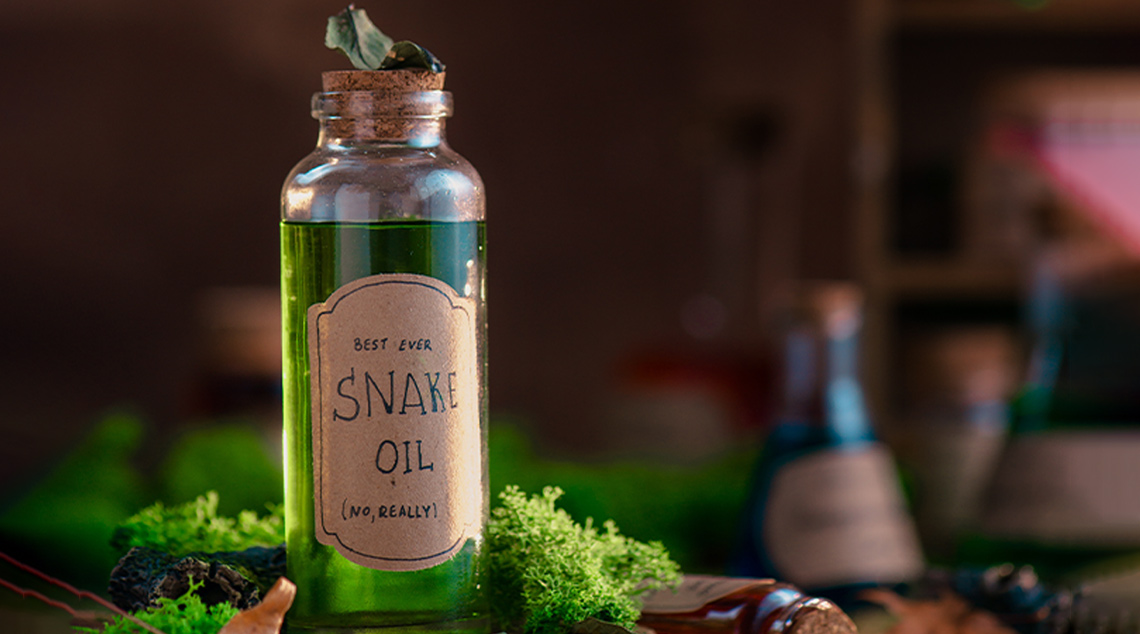Buzzwords and bogus claims: How to spot ‘scienceploitation’
Scienceploitation – when science-like language is used to promote unproven products – is rife in the health and wellness space. Here’s how to avoid it.
Using buzzwords to sell products is nothing new, but when those words sound scientific and the product involves your health, it can have serious consequences.
Meet scienceploitation. That’s when brands borrow language or concepts from popular or emerging science to market unproven products.
And there’s a good reason why it’s used.
What is scienceploitation?
Bond University research fellow Dr Oyungerel Byambasuren says pseudoscience is effective because “people believe in science and think it’s the best way to gather knowledge and pursue truth”.
“They also believe the scientific process has to be rigorous,” Dr Byambasuren, of the Institute for Evidence-Based Healthcare, says.
“So we have this baseline trust in science and scientific sounding things, which means if a claim sounds feasible or makes a little bit of sense, there’s this thought process that ‘I believe in science therefore this might actually work’.”
What’s the problem with scienceploitation?
There are many, but Dr Byambasuren says one of the biggest problems is when it wastes people’s money, time and resources.
“Most people can’t afford to waste those things, but it also means they risk missing out on things that can actually help them, including getting proper advice from a health professional.”
How to avoid scienceploitation
There are a couple of ways you can work out whether a product’s scientific-sounding health claim stacks up.
Dig a little deeper
Phrases like “evidence based” and “science backed” might sound convincing, but not all medicines and products approved by Australia’s Therapeutic Goods Administration are tested for efficacy.
Those with an AUST R number on the label are, but those with an AUST L number are only tested for safety and quality, so it pays to explore what the evidence or science behind some claims actually consists of.
Dr Byambasuren suggests being particularly wary of “before and after” evidence.
“The condition might have been one that would resolve itself, but before it did, someone started taking something, so after they felt better, it seems like the treatment worked,” she says.
“This type of evidence hardly ever translates into real results when used in proper control and comparative environments.”
Grow your health literacy
Dr Byambasuren says this is the single most important thing everyone can do to sidestep scienceploitation.
“Learning to think critically about health claims is at the core of this,” Dr Byambasuren says.
She recommends checking out “That’s a claim!” to arm yourself with some key concepts that can help.
Rely on expert advice
It’s always best to seek the advice of a trusted, qualified health professional such as a GP, pharmacist or allied health expert for wellness advice.
More myth-busting articles:
- Fact or furphy? We reveal the truth behind common fitness myths
- 5 common wellness myths busted for a healthier, happier you
- 6 common beauty myths debunked by experts
Written by Karen Fittall.






